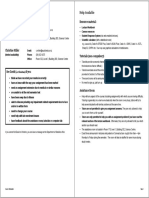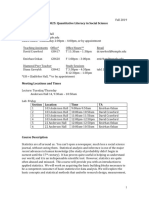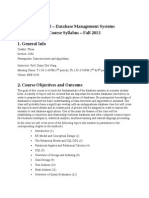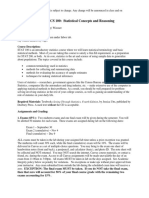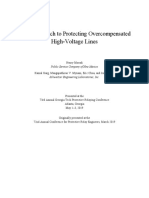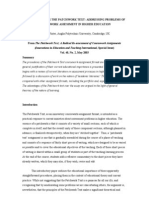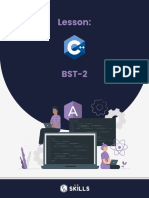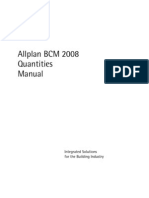STAB23: Introduction to Statistics for the Social Sciences
Nnenna Asidianya
Fall, 2023
E-mail: nnenna.asidianya@mail.utoronto.ca
Office Hours: IC412: TBD Class time: Tuesday: 2:00-3:00pm (IC130)
Thursday: 11:00-1:00PM (HW 216)
Course Description
Statistics is the science of collecting, organizing and interpreting data. In science, society and
everyday life, people use data to help them understand the world and choose how to act, and
statistical methods help to separate sense from nonsense.This course covers the basic concepts of
statistics and the statistical methods most commonly used in the social sciences.
The emphasis will be on the application of statistical methods to real data. In this class you
will learn how to read and interpret statistical data within the context of social sciences, collect,
explore, and analyze data using appropriate statistical methods. In this course, you will learn
how to check the validity of conclusions drawn from statistical analysis by proper collection of
data and proper application of statistical ideas and tools.
Prerequisites/Corequisites
There are no prerequisites for this course. No advanced mathematical training is necessary, how-
ever, students are expected to have some familiarity with quantitative subjects, and a willingness
to work hard.
Email Policy
To ensure your email gets to me, please ensure that you are awae of the following:
• Use your academic email, for example mine is nnenna.asidianyal@mail.utoronto.ca
• Use the following format in the subject of your email: CourseName/LASNTNAME For
example: STAB23H3/ASIDIANYA
• Be very clear and concise.
• Response time may take up to 48 hours.
1
� Summer 2022
Note: Emails should be adminstrative in nature (i.e. missed asessments or tutorials, course
policies, etc.). Use the piazza board or office hours to ask course related content. Emails regarding
Required Materials
• Statistical Methods for the Social Sciences, Fifth Edition, by Alan Agresti, Publisher: Pear-
son. ISBN-13: 978-0-13-450710-1.
Course Assessment
Item Description Description Scheme A Scheme B
Syllabus quiz Due September 12th, 2023 Quercus Quiz 5% 5%
Tutorial Worksheets Ongoing Ongoing 10% 10%
Term Test 1 To be determined To be determined 15% 0%
Mini Assignment 1 To be determined Data Analysis Project 10% 10%
Term Test 2 To be determined Midterm Examination 15% 0%
Mini Assignment 2 To be determined Data Analysis Project 10% 10%
Final Exam To be determined Final Examination 35% 65%
If you miss any tutorial worksheet the weight will not be moved to the final exam. Instead, your
overall quiz and tutorial worksheet averages will be computed based on the reduced number of
assessments (i.e., averaged on 9 assessments intead of 11). You are allowed to miss at most two
tutorial worksheets without penality. Scheme A is the grading scheme that most students will
have to tally their grades, but if you miss any term test for a valid reason, you default to Scheme
B.
Lectures
Theree is no plan for zoom recordings this semester. Lectures will be in person. Because the class
sizes are larger in the fall, there may be integrated Web Option (though at the moment there are
no guarantees). I will post lecture notes but comprehensive notes are best created by attending
class.
Tutorial Worksheets
I will assign tutorial worksheets on a weekly basis. They will be completed in tutorials. You will
discuss with your Teaching Assistant (TA) and peers. Everyone will submit the worksheets by
the end of the tutorial. The goal of these worksheets are to prepare you, alongside the homework,
for the term test.
2/10
� Summer 2022
Homework
On a weekly basis, I will assign a set of exercises from the course textbook, but they are not
graded. It is recommend that you work on these questions with your peers and if you need
clarification with any questions visit my office hours.
Term Tests
There will be two in person multiple choice exam that takes place outside of class time. The term
test will cover all the material covered in class and exercises until the last week before the test.
Information about the break down of the test will be released closer to the exam date.
Both term tests are mandatory, but the weighting will be preferential towards the higher test (i.e.,
10% versus 20% for lower versus higher score.)
Weekly Office Hours
I will have office hours in person in IC412 starting the second week of class. The times are to be
determined.
The Tutorial times will serve as the pseudo office hours from the TAs. Tutorials are facilitated
by your Teaching Assistant in person. You should use the time to ask your Teaching Assistants
about confusions pertaining to homework, the tutorial worksheet, or your course project (later
on). Please make sure you are registered for a tutorial section on ACORN.
Mini-Assignments
There are two mini-assignments during the duration of the course. They are based on the data
from the Fall 2020 inception of this cours, during the height of the COVID-19 pandemic. Students
were asked to select an article from Statistics Canada, that assessed the impacts of the COVID-19
pademic on a multitude of domains (education, mental health, social structures, economics).
After having analyzed an article of their choice, students proposed one survey question that they
wanted to ask to the class. This was in some sense similar to crowdsourcing (i.e. the data was
collected from the students in this course via an online survey that I administered.) Responses
to the survey questions were anonymous.
In the past students had to complete a formal report based on the data. This was done in groups
of 4-5. This term the work will be done individually based on the 2020 generated data. The first
assignment will be a series of questions based on descriptive statistics, and the later assignment
will be a series of questions based on inferential statistics. More information will be given closer
to the assignment release dates.
3/10
� Summer 2022
Missed Assessments
Every student is allowed at most two missed tutorials for the term. Please use them wisely as
no accommodations will be accepted after those missed assessments. You will receive a zero for
any other missed assessments.
There are NO make-up term tests. If a term test is missed for a valid reason, you must email the
instructor within 24 hours of the missed exam. If your missed term test is valid, we will put the
code: “-1” for an excused missed work in your Gradebook in Quercus.
If you require an extension for an assignment then notification must be provided 48 hours before
the due date. Notifying me on the due date without exceptional circumstances will not warrant
an extension. As an example, stating that you have COVID the due day of a two week old assignment
will not suffice. The general policy is a 5% deduction per day.
Remark Concerns
Any request to have a work remarked must be emailed to your instructor (not you TA) within
one week of the grades being posted. Your request must include a detailed written justification
referring to your work/answer(s) and the relevant course material to be considered.
4/10
� Summer 2022
1 Final Exam Details
The Final exam will be administered in person and will be held during the final examination
period. The final exam will cover the entire course, but a larger emphasis will be placed on the
material in the latter half of the course. The final exam accounts for 35% of your course grade.
2 Missed Final Exam
Students who cannot complete their final examination due to illness or other serious causes must
file an online petition within 72 hours of the missed examination. Late petitions will not be
considered. Students must also record their absence on ACORN on the day of the missed exam
or by the day after at the latest.
ACCESSIBILITY STATEMENT
Students with diverse learning styles and needs are welcome in this course. In particular, if you
have a disability/health consideration that may require accommodations, please feel free to ap-
proach me and/or the AccessAbility Services Office as soon as possible. I will work with you
and AccessAbility Services to ensure you can achieve your learning goals in this course. En-
quiries are confidential. The UTSC AccessAbility Services staff (located in S302) are available by
appointment to assess specific needs, provide referrals and arrange appropriate accommodations
(416) 287-7560 or ability@utsc.utoronto.ca.
ACADEMIC INTEGRITY STATEMENT
Academic integrity is essential to the pursuit of learning and scholarship in a university, and
to ensuring that a degree from the University of Toronto is a strong signal of each student’s
individual academic achievement. As a result, the University treats cases of cheating and pla-
giarism very seriously. The University of Toronto’s Code of Behaviour on Academic Matters
(http://www.governingcouncil.utoronto.ca/policies/behaveac.htm) outlines the behaviours that
constitute academic dishonesty and the processes for addressing academic offences. Potential
offences include, but are not limited to:
IN PAPERS AND ASSIGNMENTS: Using someone else’s ideas or words without appropriate
acknowledgement. Submitting your own work in more than one course without the permission
of the instructor. Making up sources or facts. Obtaining or providing unauthorized assistance on
any assignment.
ON TESTS AND EXAMS: Using or possessing unauthorized aids. Looking at someone else’s
answers during an exam or test. Misrepresenting your identity.
IN ACADEMIC WORK: Falsifying institutional documents or grades. Falsifying or altering
any documentation required by the University, including (but not limited to) doctor’s notes. All
suspected cases of academic dishonesty will be investigated following procedures outlined in
5/10
� Summer 2022
the Code of Behaviour on Academic Matters. If you have questions or concerns about what
constitutes appropriate academic behaviour or appropriate research and citation methods, you
are expected to seek out additional information on academic integrity from your instructor or
from other institutional resources (see http://academicintegrity.utoronto.ca/).
6/10
� Summer 2022
Schedule and weekly learning goals
Table 1: Tenative Weekly Schedule
1.1 Introduction to
Statistical Methodology
1.2 Descriptive Statistics Ch. 1
Week 1
and Inferential Statistics Introduction
1.4 Chapter Summary
2.1 Variables and Their
Measurement
2.2. Randomization
Ch. 2
2.3 Sampling Variability
Week 2 Sampling and
and Potential Bias
Measurement
2.4 Other Probability
Sampling Methods
2.5. Chapter Summary
3.1 Describing Data with
Tables and Graphs
3.2. Describing the Centre
Ch. 3
Week 3 of the Data
Descriptive Statistics
3.3 Describing the
Variability of the Data
3.4 Measure of Position
3.5. Bivariate Descriptive
Statistics
Ch. 3
Week 4
Descriptive Statistics
3.6 Sample Statistics and
Population Parameters
3.7 Chapter Summary
7/10
� Summer 2022
Table 2: Tenative Weekly Schedule
4.1 Introduction to
Probability
Ch. 4
Week 5 4.2 Probability
Probability distributions
Distribution for Discrete
and Continuous Variables
4.3 The Normal
Ch. 4
Week 6 Distribution
Probability distributions
Reading Week : No
Classes
4.4 Sampling Distribution
Describes How Statistics
Vary
4.5 Sampling Distribution
of Sample Means Ch. 4
Week 8
Probability distributions
4.6 Review: Probability,
sample data, and
sampling distributions
4.7 Chapter Summary
5.1 Point and Interval
Estimation
5.2 Confidence Interval
for Proportion Ch. 5
Week 9 Statistical Inference:
5.3 Confidence Interval Estimation
for a Mean
5.6 Chapter Summary (for
sections to 5.1 - 5.3)
8/10
� Summer 2022
Table 3: Tenative Weekly Schedule
6.1 The Five Parts of a
Significance Test
6.2 Significance for a
Mean Ch. 6
Week 10 Statistical Inference:
6.3 Significance Test for a Statistical Tests
Proportion
6.4 Decisions and Types
of Errors in Tests
6.5 Limitations of
Significance Tests Ch. 6
Week 10 Statistical Inference:
6.7 Chapter Summary Statistical Tests
(for sections 6.1 - 6.5)
7.1 Preliminaries for
Comparing Groups
7.2 Categorical Data:
Comparing Two
Proportions
Ch. 7
Week 11 7.3 Quantitative Data: Comparison of Two
Comparing Two Means Groups
7.4 Comparing Means
with Dependent Samples
7.8 Chapter Summary
(for sections 7.1 - 7.4)
8.1 Contingency Tables
8.2 Chi-Squared Test of
Independence
Ch. 8
8.4 Measuring Analyzing Associations
Week 12
Association in Between Categorical
Contingency Tables (pp. Variables
233 - 235)
8.7 Chapter Summary
(pertaining to 8.1 - 8.4)
9/10
� Summer 2022
Table 4: Tenative Weekly Schedule
9.1 Linear Relationships
9.2 Least Squares
Prediction Equations
9.3 The Linear Regression
Ch. 9
Model
Week 13 Linear Regression and
Correlations
9.4 Measuring Linear
Association: The
Correlation
9.5 Inference for the Slope
and Correlation
10/10

